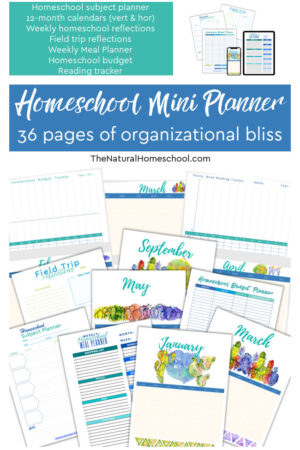Preparing your child for the next step in their academic journey is a multifaceted task that requires thoughtful planning, dedicated support, and a deep understanding of your child’s unique needs and capabilities.
As children transition from one educational level to another, it’s crucial to equip them with the right tools and mindset to confidently embrace new challenges and opportunities. This comprehensive guide offers a range of strategies for parents to effectively support their child’s academic growth and readiness for the next phase in their education.

Understanding Your Child’s Academic and Emotional Needs
The initial step in preparing your child for their upcoming academic phase involves a thorough understanding of their current academic standing and emotional state. It’s essential to assess their strengths and weaknesses across different subjects, as this helps in pinpointing areas that require more focus.
Academic readiness is not just about intellectual abilities; emotional readiness is equally significant. As children progress academically, they often face an increased workload and greater social pressures. Ensuring that your child is emotionally equipped to manage these changes is just as important as their academic preparation.
Engaging with your child’s current teachers can be incredibly beneficial in this regard. Teachers offer a unique perspective on your child’s performance and behavior in the classroom and can provide insights into areas for improvement that might not be apparent at home. They can also suggest effective strategies and resources.
Fostering a Growth Mindset
Developing a growth mindset, the belief that abilities and intelligence can be developed, is vital for academic and personal growth. Encouraging your child to view challenges as opportunities for learning rather than as insurmountable obstacles is key. Teach them that setbacks and mistakes are a natural part of the learning process, and emphasize the importance of effort and perseverance in overcoming these challenges.
Promote curiosity and a love for learning by exposing your child to a broad range of subjects and activities. This not only expands their knowledge but also aids them in discovering new interests. Emphasize the importance of the learning process and the effort put into work, rather than focusing solely on outcomes, to reinforce the value of hard work and dedication.

Enhancing Academic Skills
Academic preparation entails strengthening foundational skills and introducing new concepts that will be encountered in the next academic phase. Focus on core areas such as reading, writing, mathematics, and critical thinking. For example, if your child struggles with reading comprehension, provide them with diverse reading materials and engage in discussions to enhance their understanding and analytical skills.
Gently introducing advanced concepts and topics can also be beneficial. This doesn’t mean overwhelming them but rather familiarizing them with ideas and subjects they are likely to encounter soon. This approach can help make the academic transition smoother and less intimidating.
Promoting Effective Study Habits
Good study habits are a cornerstone of academic success. Assist your child in establishing a structured study routine, including a quiet and organized study space, regular study times, and strategies to minimize distractions. Teach them effective note-taking and study techniques, like summarizing information in their own words, creating flashcards, and teaching the material to someone else.
Encouraging your child to set realistic and achievable goals is important for maintaining focus and motivation. Additionally, imparting time management skills and highlighting the importance of balancing academic and leisure activities is crucial for their overall well-being.
Leveraging External Support
At times, external support is crucial in preparing your child for their next academic step. If your child requires more personalized attention in a particular area, consider enlisting the help of a tutor. For instance, an online english tutor can provide individualized guidance and support to strengthen their skills in this subject. A tutor can offer a different perspective and teaching style that might resonate better with your child.
Encouraging Independence and Responsibility
As children mature, it’s important to foster a sense of independence and responsibility in their academic journey. Encourage them to take ownership of their learning, including making decisions about their study schedule, choosing project topics, and finding solutions to academic challenges. Providing guidance and support is essential, but it’s also important to give them space to make decisions and learn from their experiences.
Staying Involved and Supportive
While promoting independence, staying involved in your child’s academic journey is equally important. Regular communication about their school experiences, celebrating their achievements, and providing support through challenges are all crucial. Participate in parent-teacher meetings and school events to stay informed about your child’s academic environment and progress.

Addressing Emotional Well-being
The emotional aspect of transitioning to a new academic phase is critical. Children may experience anxiety, stress, or fear about the unknown. Engage in open and honest conversations about their feelings, provide reassurance and support, and, if necessary, seek assistance from school counselors or psychologists.
Encouraging Extracurricular Activities
Participation in extracurricular activities provides a necessary break from academics and aids in the development of social skills, time management, and personal interests. Whether it’s sports, arts, music, or clubs, these activities can greatly contribute to your child’s overall growth and well-being.
Nurturing Lifelong Learning and Adaptability
Beyond the immediate academic steps, it’s essential to nurture a sense of lifelong learning and adaptability in your child. In today’s rapidly changing world, the ability to adapt and continuously learn is invaluable. Encourage your child to see learning as a continuous journey, not confined to the walls of a classroom.
Foster an environment where curiosity is rewarded, and questions are encouraged. This can be achieved by involving them in various learning activities outside of school, such as visiting museums, engaging in science projects at home, or even traveling to new places to learn about different cultures and environments. These experiences not only enrich their knowledge but also teach them to adapt to new situations and learn from them.
Instilling this love for learning and adaptability will serve them well throughout their academic journey and beyond, setting them up for success in whatever path they choose to pursue in the future.
Conclusion
Preparing your child for the next step in their academic journey is an inclusive process that involves understanding their needs, fostering a growth mindset, enhancing academic skills, promoting effective study habits, encouraging independence, staying involved, addressing emotional well-being, and encouraging extracurricular activities.
Each child is unique, and finding the right balance of support, independence, and challenge is key to helping them thrive in their new academic environment. The goal is not just academic success but also the development of a well-rounded, confident, and happy individual.
You might also like:
-
Sale!

Reusable Printable Homeschool Mini Planner (36 pages)
$18.00$9.99 Add to cart- Raising A Bilingual Baby Or Child: 9 Tips For How To Do It
- How different age groups can benefit from different types of chores
- How to Make the Montessori Method Work for You
- 5 Stages Of Child Development That Every Parent Should Know
Life Skills For Teens: Learn to Prepare for Your First Job, Cook a Great Meal, Thrive
 Preparing Your Child For Academic Success: Enjoyable Practical Tools That Motivate Children to Learn at a
Preparing Your Child For Academic Success: Enjoyable Practical Tools That Motivate Children to Learn at a My Preschool Workbook: 101 Games & Activities that Prepare Your Child for School (My Workbook)
My Preschool Workbook: 101 Games & Activities that Prepare Your Child for School (My Workbook)
Latest Posts
- Discovering the Magnificence of the Montessori Environment
 Aesthetics in Montessori environment serve several purposes beyond just aesthetics. They play a key role in establishing an atmosphere that satisfies the senses, aids in the development of order in young brains, and organically fosters a love of beauty.
Aesthetics in Montessori environment serve several purposes beyond just aesthetics. They play a key role in establishing an atmosphere that satisfies the senses, aids in the development of order in young brains, and organically fosters a love of beauty. - Levelling Up Your Career
 Levelling up your career is a lot easier if you pay attention and follow these four easy steps.
Levelling up your career is a lot easier if you pay attention and follow these four easy steps. - Craft Activities for Kids ~ Paper Weaving Projects
 In this post, we are looking at some really fun paper weaving projects that your kids will find a lot of fun!
In this post, we are looking at some really fun paper weaving projects that your kids will find a lot of fun! - Inspired by Montessori Curriculum for Toddlers PDF (225 pages)
 Let’s be completely honest for a minute, guys, in regards to the best Montessori curriculum for toddlers PDF. I think we can all agree that homeschooling a toddler or having a toddler at home while we homeschool our older kids can be as easy or as daunting as you want…
Let’s be completely honest for a minute, guys, in regards to the best Montessori curriculum for toddlers PDF. I think we can all agree that homeschooling a toddler or having a toddler at home while we homeschool our older kids can be as easy or as daunting as you want… - Online Learning Takes a Stand Against Traditional Educational Methods
 Online Learning Takes a Stand Against Traditional Educational Methods
Online Learning Takes a Stand Against Traditional Educational Methods











Leave a Reply